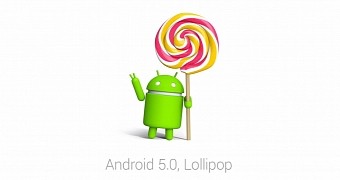Each new financial quarter in the last couple of years shows Android as the dominant operating system for mobile devices. Google’s mobile platform was on a trending path since its launch back in 2008 and it seems like it can never stop growing.
Although Android has already surpassed 80% market share several quarters ago, Google is pushing forward with new versions of the OS and new projects like Nexus and Android One, which are meant to offer customers a clean experience.
However, as much as Google may want to go over the 85% threshold with its Android operating system, it will not be possible unless something really bad happens with the other mobile platforms that are supposed to compete with Android.
Wall Street Journal reports research firm Strategy Analytics found out that Android now runs on 84% of smartphones shipped globally in the Q3 2014. As expected, Android is followed by iOS with 12% market share and Windows Phone with only 3%.
BlackBerry is still in the cards, but with only 1% market share, which is enough to make it to top 4 operating systems. Keep in mind that these numbers are only for Q3 2014, so the situation might change in the next quarter, but not by much.
With Google launching the Nexus 6 and Nexus 9 devices and Apple that already released the iPhone 6 and iPhone 6 Plus, some of these numbers will surely change in the next quarter.
BlackBerry and Windows Phone will not disappear anytime soon
Anyway, in order for Android to go past the 85% amount, it needs to gain some market share from its rivals, namely iOS, Windows Phone or BlackBerry. Seeing how low BlackBerry and Windows Phone market shares are, there’s only one other competitor that might give Android the percent needed to go beyond 85% market share.
As mentioned earlier, iOS has only 12% market share worldwide and it’s highly unlikely that it will get lower than that unless something really bad happens with Apple.
But that shouldn’t worry Google too much, as research firms estimate that smartphone shipments in 2015 will grow by at least 15%, which means even more Android handsets will be shipped.
Even if Android’s market share will drop slightly to 83% or 82%, the number of smartphones shipped may actually be higher next year due to the growth of the market overall.
So while the future is bright for Android, there’s a slim chance that it will be able to capture more than 85% of the market share unless Windows Phone and BlackBerry disappear completely and/or iOS drops really low.

 14 DAY TRIAL //
14 DAY TRIAL //